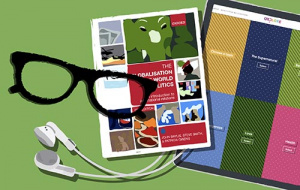
To help schools and students prepare for applying to university during lockdown, Nelli Univ’s Schools Liaison and Access Officer has recorded the talk she’d usually be delivering in schools this time of year. Watch here and don’t forget to get in touch, either via email (access@univ.ox.ac.uk) or on Twitter if you have questions. We’d also love to hear how you’ve been getting on exploring your subject interests beyond school.
 Explore your Subject
Explore your Subject
To get into a top uni, it’s not enough just to do well at school. Universities want students who are passionate about their subject, who think for themselves and who are independent learners. That means that if you’re thinking about university, finding out what you’re really interested in and developing that interest is a top priority. That’s where “super-curricular” activities come in.
 What are super-curricular activities?
What are super-curricular activities?
You’ve probably heard of “extracurricular activities”, and probably do a few of them yourself. The “extra” refers to an activity being outside of your regular curriculum, e.g. doing a sport or enrolling in a first aid course.
Super-curricular activities are those that take the subjects you study further, beyond that which your teacher has taught you or what you’ve done for homework. You may go into more depth on something you picked up in the classroom or learn about a new topic altogether. You can explore your subject in many ways; for example, by reading, as well as watching videos online, downloading lectures, visiting museums or entering academic competitions.
 Why are super-curricular activities important?
Why are super-curricular activities important?
To do well at a top university, it is important to have a) enthusiasm and curiosity for your subject and b) the capacity for independent study.
Super-curricular activities can help you:
- Choose a subject to study. Doing something like extra reading or entering an essay competition in your subject are good ways for you to check if you have the passion for your subject that you think you do. If you’re enjoying exploring the subject, even when your homework is done for the week, it’s a positive sign that it’s the right subject for you!
- Provide evidence on a personal statement. Many universities will also look for you having done super-curricular activities because it can indicate that you have the capacity for self-study and can demonstrate how you respond to new ideas that you come across.
- Develop important skills. You can also gain skills from super-curricular activities which can help you do well in future university interviews and admissions tests/assessments. Your ability to think critically, absorb new information, make inferences or consider things from multiple angles, are all things that interviews and admissions tests are geared up to assess. You can use super-curricular exploration to develop these skills in yourself; for example, by pushing yourself to comprehend new information, getting to grips with different concepts, challenging assumptions or uncovering weaknesses in arguments you read/listen to. Asa bonus, these skills will also help you become a successful university student as uni courses often require a lot more self-study than you may have been used to so far.
 Some top tips
Some top tips
First things first, exploring your subject is not about filling your head with facts! You will develop important independent study skills more effectively if you are engaging actively with your subject. Here are some top tips for how to explore your subject in ways that help you develop independent study skills (such as how to think critically and flexibly).
- Be open minded. Do not be afraid to try out some things that are different to what you’re used to. You might discover your next new hobby!
- Find connections. Look for links in between different things that you have explored. By doing this you really test how well you’ve understood the ideas and you could even come up with unique ideas of you own. Making comparisons and contrasts is good ways to do this.
- Think actively and ask questions. Don’t just accept the arguments that you come across. Try and challenge them, and think of counter examples. Would it be the same in all situations? Is there another way of solving that problem? What do you really think?
- Pause and reflect. While reading articles or listening to podcasts, stop to think. What is your opinion? You might find it useful to write a short paragraph to practice articulating your own ideas about a subject
- Share and discuss. Always talk about things with people, whether your teacher, parent, or friend. Perhaps you don’t understand something you’ve read or you’d like to debate it further. Conversations such as these provide excellent practice for future interviews.
- And remember to follow your interests. Don’t do an activity just because you think it looks good. Read books and take part in things that you think are genuinely stimulating. This means that you avoid having to try hard to fake interest. Pursuing super-curricular activities should never become a chore.
Don’t forget to explore our Reading Bank and Resource Hub too.
